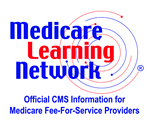Regional Extension Centers Prepare for National Effort to Support Providers to Achieve Meaningful Use of Electronic Health Record Systems
Wednesday, August 11th, 2010 | Posted by: Mat Kendall, Director, Office of Provider Adoption Support, on ONC’s Health IT Buzz Blog and republished here by e-Healthcare Marketing.
To support the adoption and meaningful use of electronic health records, ONC has funded 60 Regional Extension Centers (RECs) across the country. The goal of the RECs is to provide outreach, education, and on-site technical assistance to support 100,000 primary care physicians implementing electronic health records (EHRs) into their practices and working to attain meaningful use of their systems. The RECs received $643 million in federal funds for the next two years and will receive an additional $42 million in subsequent years to help physicians make the transition to EHRs.
Electronic health records and health IT have the potential to improve the quality, safety, and efficiency of health care, so each REC must be prepared to help providers find the best system for their needs while managing the effects of health IT implementation on the practice. To that end, ONC is hosting five regional meetings this summer to provide REC staff members with an opportunity to receive hands-on training about the new meaningful use regulations, as well as to share best practices with one another.
The first three meetings, held recently in Kansas City, MO, Providence, RI, and Nashville, TN, created opportunities for the regional REC staff to get together in an environment that encouraged learning and information sharing. Conference participants attended educational sessions and were given the opportunity to network with CMS employees, their state partners, health information exchange colleagues, and ONC staff from other programs. The remaining regional meetings will be held in Chicago, IL, on August 10-11, and Salt Lake City, UT, on August 17-18.
As part of ONC’s effort to increase outreach and support to primary care providers, the Office of Provider Adoption Support (OPAS) meets with each REC at each regional meeting in order to better understand their unique program goals, opportunities, and challenges. Additionally, the conference sessions are designed to give REC participants the practical hands-on training they’ll need to help their providers achieve meaningful use. Participants were eager to learn what other programs were doing and, during group sessions, they were able to share ideas, lessons learned, and best practices.
These summer meetings are also an opportunity to familiarize the RECs with the support tools made available to them in the REC program. Those tools will help the RECs continue to collaborate online and share ideas away from the face-to-face time that the regional meetings provide.
ONC continues to educate the RECs on the process of getting the nation’s physicians to meaningful use. OPAS is always interested in input from our stakeholders on the messages that are most important to convey to the RECs as they work to support the widespread adoption of health IT among the nation’s healthcare community. We welcome your feedback and ideas.
# # #
To post comments directly on ONC’s Health IT Buzz blog, please click here.
See a new directory just compiled by e-Healthcare Marketing of the REC Web sites targeting physicians and eligible professionals.



